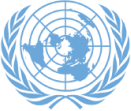(General Debate of the Second Committee)
Mr. Chairman,
At the outset, may I congratulate Your Excellency Mr. Cardi on your well-deserved election and pledge my delegation’s full support in discharge of your important duties. Our sincere felicitations also go to the other members of the Bureau who will navigate the work of this Committee during the 69th session of the General Assembly.
My delegation associates itself with the statements made by the distinguished representative of the Plurinational State of Bolivia on behalf of the Group of 77 and China.
Mr. Chairman,
The Second Committee faces an important task to contribute to the articulation of a new global development agenda beyond 2015. We view that the report of the Open Working Group on SDGs should constitute the basis for integrating SDGs in the Post-2015 Development Agenda. It should also be preserved in its entirety and should not be renegotiated. Yet, we are of the view that the report could have better reflected the special needs of LLDCs as Rio+20 underscored the special challenges facing the most vulnerable countries including LLDCs. We look forward to a synthesis report by the Secretary General and the intergovernmental negotiations on SDGs during this session of the General Assembly.
Mr. Chairman,
Alike many developing countries Mongolia is impacted by climate change in a unique way and has specific needs. Climate change is not a challenge for the future: it is a reality of today. As no country is immune to climate change, Mongolia commends Secretary-General’s leadership to galvanize and catalyze the global action on climate change.
Indicating the country’s eagerness to transition to a sustainable development model and a low carbon economy the Parliament of Mongolia has adopted a Green Development Policy. It creates awareness of the potential for enhancing low-emission and climate–resilient principles for future economic growth in Mongolia and supports the Government’s efforts to shape its priorities for green growth and the Post 2015 development framework. In order to reduce income equality and improve financing for sustainable development my Government worked out a draft law on budget transparency and submitted it to the Parliament.
Mr. Chairman,
As free economy Mongolia trades with 130 countries, mostly through sea access through the territory of the People’s Republic of China and the Russian Federation our trade with a number of third neighbors has grown significantly and citizens from 116 nations are earning and living in Mongolia. Since a fair, just, transparent, inclusive and foreseeable trade supports the effective markets and creation of job opportunities, the landlocked developing countries should formulate a coherent policy, improve a quality of infrastructure and connectivity and have good quality products with international standards and competitive prices.
In this regard, my delegation wishes to emphasize the recent high-level visits from Mongolia’s two immediate neighbors, which brought major agreements on strengthening her trade and economic ties. The visit from China contributed to solve many issues concerning seaports, new routes for railway, reducing freight cost, increasing trade volume. With Russia, we agreed concrete issues including developing a strategic partnership in the railway sector to ensure increase the export and transit goods and strengthen Mongolian railway’s role in Eurasian transport and logistics system, new routes for railway and modernize the railway infrastructure in Mongolia.
Furthermore, my delegation wishes to highlight a high level international workshop on “WTO Agreement on Trade Facilitation: Implications for LLDCs” hosted by the Government of Mongolia last June as part of the ten-year review of the Almaty Program of Action, and the launch of the LLDCs’ ITT in Ulaanbaatar which needs to be accepted and ratified by fellow LLDCs at their earliest.
The Second United Nations Conference on LLDCs in Vienna this November will take into account a broad range of issues including investment in infrastructure, development of efficient transit facilitation, regional cooperation and integration, building resilience of LLDCs, promoting "green" economic activities and promoting public private partnership, South-South and triangular cooperation, and the raised issues from the National consultations as well. It is our sincere belief that the Second United Nations Conference on LLDCs will provide a unique moment to inject political momentum and commit to taking tangible actions to tackle the specific structural challenges of the vulnerabilities over the next decade.
Mr. Chairman,
Finally, my delegation attaches significance to all the aforementioned issues be considered at the Second Committee. You can count on our full cooperation and constructive engagement in order to achieve positive outcomes for this Session.
Thank you for your attention.


